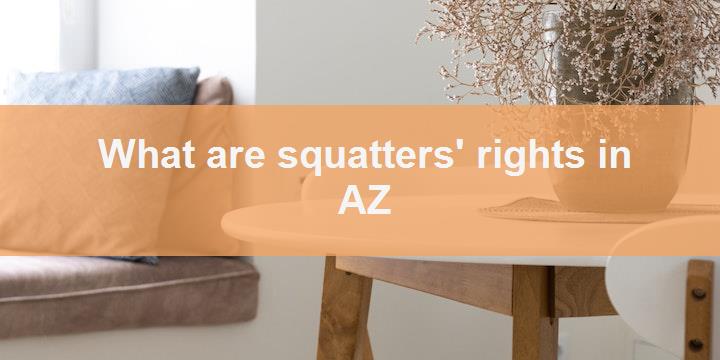What are squatters’ rights in Oregon?
Firstly, it is important to understand what squatters’ rights are. Secondly, it is essential to know that laws surrounding these rights differ from state to state. In Oregon, squatters’ rights can come into effect after a certain period of time living on someone else’s property. Thirdly, it is important to note that squatters’ rights do not give the individual legal ownership of the property. Additionally, it is crucial to understand that property owners can take legal action to remove squatters from their land. Finally, it is wise to seek legal advice and understand the laws surrounding squatters’ rights in Oregon before taking any actions.
What is the squatting/squatter?
To begin with, the squatting is a term used to describe the act of occupying an abandoned or unoccupied space without the owner’s permission. Squatters are individuals who take up residence in such structures, which may include homes, buildings, or land. Squatting is often done out of necessity, as many people cannot afford traditional housing options. Furthermore, squatters may also be people who want to live a more alternative lifestyle, choosing to reject traditional forms of housing and instead opting for communal living with other like-minded people. An example of a squatter might be a homeless person who finds an abandoned building to take shelter in or a group of young adults who choose to live in a communal “squat” as a form of political protest.
What is Adverse posession in Oregon?
Adverse possession in Oregon is a legal concept that allows someone to gain ownership of a property that they have been using without the owner’s permission. To qualify, one must meet certain requirements such as occupying the land for a specific period of time and paying property taxes. However, adverse possession can be a contentious issue, especially if multiple parties claim rights to the same parcel of land. Additionally, the process can be complicated, requiring expert legal advice to navigate. Despite its challenges, adverse possession can be a viable option for those seeking to gain ownership of a property they have been using for an extended period of time.
Is it legal to squat in Oregon?
Firstly, it is important to understand the legal parameters in place for squatting in Oregon. According to state law, it is illegal to occupy a property without the owner’s permission. However, there are exceptions in cases where the individual can prove adverse possession. This refers to situations where the occupant has continuously and openly occupied the property for a certain period of time, usually ten years or more. It is essential to note that squatting can lead to legal repercussions and is not recommended as a viable long-term housing solution. Therefore, it is always advisable to seek legal advice and explore alternative housing options.
Can police remove squatters in Oregon?
First, it is important to understand that Oregon law does not recognize “squatters’ rights” or legal ownership of property through adverse possession. Therefore, if someone is occupying a property without the owner’s permission, they are considered trespassers under the law. However, before police can intervene, the property owner must have legal authority to ask the squatters to leave, such as a title, deed, or lease agreement. If the squatters refuse to vacate, the property owner can then file an eviction process through the court system. It is important to note that while the police can assist in enforcing the court order, they cannot forcibly remove squatters without a court order in Oregon.
How to evict squatter in Oregon?
Evicting squatters in Oregon can be a daunting task, but it is necessary when property owners want to take control of their property. Firstly, property owners should serve a notice to the squatters. Secondly, they should file a complaint with the court, which will issue an order of eviction. Subsequently, the property owner must provide a copy of the order to the sheriff’s office to have the squatters removed. In addition, if the squatters do not leave, the property owner can obtain a writ of restitution, allowing the sheriff’s office to remove them by force if necessary. Ultimately, if a property owner takes all the necessary legal steps, they can successfully evict squatters from their property in Oregon.
FAQ
Q: What are squatters’ rights in Oregon?
A: Squatters’ rights, or adverse possession laws, allow a person to acquire legal ownership of a property if they have occupied it continuously for a certain period of time, without permission from the owner, and with the intent to claim ownership. In Oregon, this period of time is ten years.
Q: Can anyone claim squatters’ rights in Oregon?
A: No. The laws of squatters’ rights apply only to those who have been in continuous possession of the property for the required period and can prove that their occupation was not agreed upon or authorized by the owner.
Q: Does adverse possession apply to both residential and commercial properties?
A: Yes. Adverse possession laws in Oregon apply to all types of properties, including residential and commercial properties.
Q: Can a squatter claim ownership of a property if they have been paying taxes and/or making improvements on the property?
A: No. Paying taxes and making improvements on a property does not, in and of itself, give a person the right to claim ownership of the property through adverse possession.
Q: What happens to the previous owner’s rights to the property once a squatter has successfully claimed adverse possession?
A: Once adverse possession has been successfully claimed, the previous owner’s rights to the property are extinguished. The squatter becomes the legal owner of the property, subject to any liens or other encumbrances that may exist.
Q: Are there any exceptions to the ten-year rule for squatters’ rights in Oregon?
A: There are some exceptions, such as when the property at issue is owned by the government or when the occupant is a minor. However, these exceptions are limited and should be discussed with a qualified attorney.
Q: Should I seek legal advice if I am facing a squatter on my property?
A: Yes. Dealing with a squatter can be a complicated legal matter, and it is important to seek legal advice from a qualified attorney in order to protect your rights and interests.
Also Reading
Home inspection’s price in West Virginia?
What is the average rent in Lexington?
What is the eviction process in Rhode Island?




